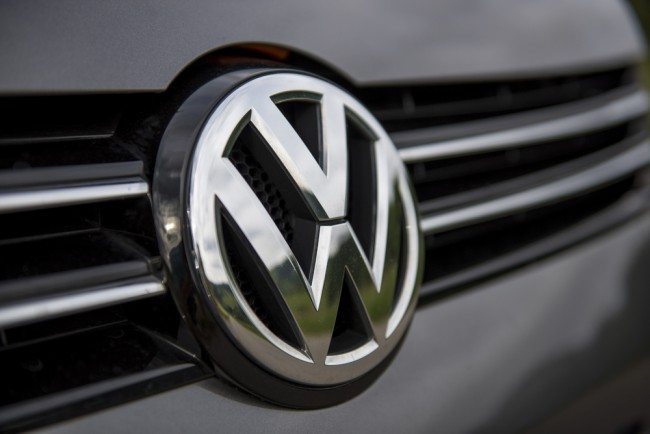The company’s chief executive and chairman were due to appear before investors for the first time since the scandal erupted in September, reports The Times.
VW announced that 36,000 cars contain discrepancies in CO2 emission readings, well down on the 800,000 vehicles identified last month.
Nine models had emissions measurements out only by “a few grams”, it emerged. VW said there was no evidence of illegal changes to fuel consumption and emissions figures.
Shares in the group jumped by 6 per cent to €131.75 after the announcement.
The figures are a huge boost for VW, which has been embroiled in the biggest crisis in its 78-year history after admitting that it fitted cheat software on 11 million diesel vehicles worldwide, providing deliberately lower nitrogen oxide (NOx) readings.
Recalls of the affected cars begin next month, with 1.2 million vehicles involved in the UK.
Matthias Müller, VW’s chief executive, and Hans Dieter Pötsch, the chairman, will provide an update today on the wider investigation into the NOx scandal, as well as outlining a strategy to deal with the group’s future.
The update is unlikely to name individuals at the centre of the emissions rigging, though it could give more information on why the software was installed.
It has been revealed already that the NOx problem could be remedied in Europe by fixing software and installing an air filter that costs as little as €10.
More extensive work is needed on about three million cars with 1.6-litre engines.
VW’s chief in the United States, where the scandal began, claimed that the cheating was down to a “couple” of software developers in Germany.
In a further disclosure last month, the company said that it had uncovered irregularities with CO2 emission levels during internal investigations, which could affect about 800,000 cars. However, VW said yesterday that the figure had “not been confirmed” after a full audit of suspected models.
It said that “slight deviations” had been found in nine models of its Polo, Scirocco, Jetta, Golf and Passat marques, with 36,000 cars affected, 0.5 per cent of the production line. This included four petrol models — a 1-litre Polo, a 1.2L Jetta, a 2L Passat Alltrack and a 1.4L Passat Variant. Those deviations amount to “a few grams of CO2, on average”.
VW added: “The suspicion that the fuel consumption figures of current production vehicles had been unlawfully changed was not confirmed. During internal remeasurements, slight deviations were found on just nine model variants of the Volkswagen brand.”
These models would be remeasured by a neutral technical service under the supervision of the appropriate authority by Christmas. “In cases where the correctness of original figures is confirmed, there will be no consequences. These cars can be offered for sale by dealers without any reservations.”
The company initially said that issues with CO2 emissions could cost it €2 billion (£1.45 billion) on top of the costs incurred over the diesel pollution scandal.
It was revealed last week that VW sales in Britain fell by a fifth in November. Fewer than 13,000 vehicles were registered, down from 16,200 at the same time last year.
The company’s overall share of the UK car market declined from 9.4 per cent to 7.24 per cent. Sales of other VW brands, Audi, Seat and Skoda, also fell, with those of Seat down by almost a quarter.


